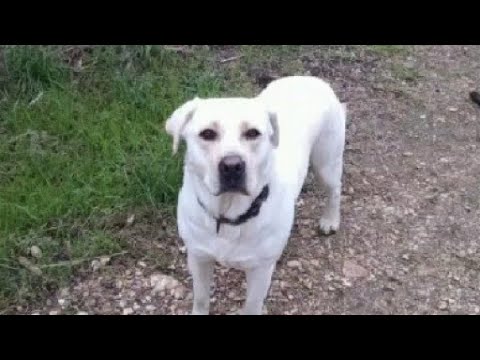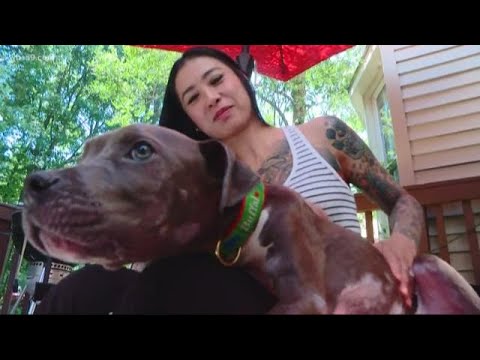I’m looking into getting a bulldog, and I wanted to know what the best age was to neuter my pet. So, I did a little research to discover all the factors that go into neutering.
What is the best age to neuter a bulldog? Veterinarians recommend neutering your bulldog between 8-12 months. If your bulldog is showing problematic behaviors such mounting or spraying, veterinarians may recommend neutering as young as six months old.
Whether you are pro-neutering or anti-neutering, the benefits of neutering are, for the most part, positive. Many owners think neutering is cruel to your pets, but keeping them sexually frustrated, and demanding the restriction of certain innate behaviors can make the relationship between you and your bulldog rockier than if you had neutered your bulldog. There are also many significant health benefits or neutering that can lead to a healthier and happier life for your bulldog.
If you are interested in a bulldog’s heat cycle, we recommend reading our article on the best age to breed a new bulldog.
Timing
Bulldog sexual organs, like humans, allow for the presence of hormones that contribute to growth. In accordance with bulldog’s growth, many veterinarians recommend neutering when your bulldog has reached his or her full grown potential which can happen between 8 and 12 months.
Other veterinarians are concerned more with the sexual behaviors exhibited by your bulldogs. If your bulldog is portraying sexual behaviors causing you distress or worry, it is probably time to neuter, some even as early as 6 months old. The neutering process can calm down your pet, making them more friendly and docile.
To prevent sexual behaviors, veterinarians may suggest that you consider neutering your bulldog before sexual maturity.
Some health conditions may make a need for neutering to occur early than you may wish. Bulldogs are no strangers to health problems, and sometimes a prolapsed urinary tract can make your vet more inclined to recommend that you neuter earlier.
If you neuter too early, this can result in a higher chance that your pet will experience some level of urinary incontinence.
The Neutering Process
For bulldog owners that are not planning on ever breeding their pet, neutering is recommended. For males, this helps to limit any undesirable behaviors, and in females, it helps to prevent pregnancy as well as put a stop their sexual frustrations when they’re in heat.
Bulldog specific veterinarians are the best choice when you are looking to get your bulldog neutered. They are the most qualified and their experience allows them to make trustworthy recommendations for both you and your bulldog.
Neutering or getting your pet “fixed” is a general term referring to the removal of the removal of the reproductive sex organs of your pet. Male neutering is called castration, and female neutering is called spaying.
When a male bulldog is castrated, an incision is made in front of the scrotum, the testes are removed, and then your bulldog is sewn back up. When female bulldogs are spayed, their abdomen is cut into, the ovaries and uterus are removed, and they are sewn back up. The surgery is fairly straightforward and is done under anesthesia so your dog will not experience the pain of surgery.
When you adopt, some shelters will include the cost of neutering in your adoption process, which can be a plus. Cost, however, should not be the only consideration you bring to the table when deciding whether or not to neuter your pet. Neutering is usually very cheap costing anywhere from $50-$300 depending on your dog’s weight, or if your female bulldog is in heat. If cost is still the most prevalent cost in your decision, many humane societies are on the cheaper end for neutering.
Recovery
Like humans, after surgery, your bulldog will be a bit “out of it.” Until the anesthesia wears off, they might be a little dizzy or dazed. Depending on where you have your bulldog neutered, he or she might be ready to go home with you the same day. Other clinics may want to keep an eye on your dog overnight to ensure the health of your pet.
Neutering your pet is a routine surgery, and most of the time your pet will be up and about after a few hours. Depending on the instructions from your vet, you will want to restrict your bulldog’s activity for a few days to allow for proper healing of the incision site. As is the case with all surgeries, you will want to observe the surgery site for any red flags like swelling, pulled stitches, or inflammation. Complications are uncommon, but if your bulldog’s health is a priority, you will want to be on your guard. If stitches were used, your bulldog will need to have a return vet visit for stitch removal.
It can take up to four weeks for your newly neutered male dog to be fully sterile. To prevent accidental pregnancies, your male dog should still be kept away from any females that will be in-heat until four weeks following your male bulldog’s neutering surgery.
Neutering Pros

There are millions of cats and dogs out there that don’t have a home. For these animals, overpopulation is an issue making euthanization more common than it should be. Lack of a breed history also makes bred pets more popular than rescues or strays. Neutering your pet can make you a responsible pet owner, preventing more reproduction.
For females, neutering removes the unwanted “heat” cycles that can result in undesirable and embarrassing breeding behaviors. Neutering your pet will also permanently prevent pregnancy so you don’t have to worry about the safety of your pet during pregnancy, placing the puppies in homes, or eventual euthanasia if you give them to a shelter or pound.
In males, neutering removes their “roaming” behaviors and make them more prone to staying closer to home. Bulldogs that have a natural desire to mate will do anything to get out of the house looking for a mate which can make place them in more at-risk situations like if they cross the street. Neutering them will also remove their spraying tendencies to mark their territory, inappropriate humping or mounting behaviors, and reduce aggression towards strangers and other dogs.
Neutering directly correlates to health benefits for your bulldog. The removal of your male bulldog’s testes brings their chances for prostatitis and testicular tumors down to almost zero. Spaying your female bulldog directly correlates to a lowered risk for mammary tumors, reproductive bleeding, uterine tumors, and various infections.
Often when pets experience life-threatening conditions like cancer, the most humane decision, most cost-effective, and the most common decision made by pet owners is to put their pet down. By removing their risk for many life-threatening conditions, you can prevent future pain, and your bulldog can have a happier and healthier life.
Neutering Cons
After you have neutered your pet, they may undergo personality changes. Usually, this is for the better, but sometimes your pet will be more inclined to be less active. This can lead to weight gain and the development of an unhealthy lifestyle.
If you are interested in breeding your bulldog(s) or showing them at a competition, then neutering is a difficult decision to make. Bulldogs can be neutered after their successful “career” in breeding. However, this can take future opportunities off the table. Owners that want to show their dogs in dog-shows or competitions will also have to time the neutering of their bulldog just right. Neuter too soon, and your bulldog isn’t fully developed, neuter too late and potentially aggressive behaviors have developed.
Some health concerns can arise in neutered bulldogs vs. un-neutered dogs. In neutered dogs, there is a higher risk of bone, urinary tract, and prostate cancer, and especially in bulldogs, a
higher probability of bone and joint disorders like hip dysplasia.
Related Questions:
At what age are bulldogs considered fully grown? Even if you think your dog is fairly sized, it can take anywhere from 9 to 18 months for a bulldog to be fully grown. Fully grown bulldogs will typically grow to 40-50 pounds signifying that they are fully-grown.
Will neutering my bulldog calm him down? Neutering your bulldogs removes the production of hormones. In males, higher levels of testosterone often lead to higher levels of aggression. Neutering your dog can only help alleviate some aggressive behaviors.






